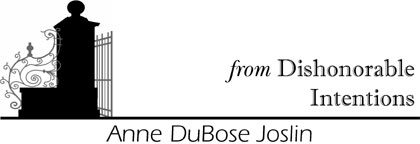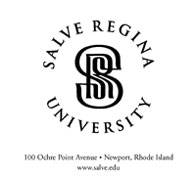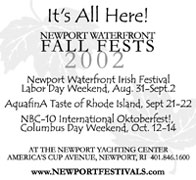




Looking
back over the previous fourteen months in the presidential
campaign, I felt as if I had been on a non-stop roller coaster. Bush
was down in the fall of 1987; he was ahead by year’s end; he was
crushed in Iowa; he was a wimp; he would never win over a
heavyweight like Bob Dole; the vice president’s political career
was
over. Then, Bush rebounded in the New Hampshire primary. He
won! We won! After Super Tuesday, we knew that Bush was going
to be the Republican nominee and thought he might be up against the
leading Democrat at the time, Al Gore. A few weeks later, it looked
as if Jesse Jackson was going to be his opponent. During four long
months in the spring and early summer, it looked as if there were no
way Bush could pull ahead of any Democrat by November. Our
thoughts were confirmed in July, just before the Democratic
Convention, when the campaign staff was sure that Dukakis had it
locked up. In mid-August, Bush had been the underdog by seventeen
points, struggling for recognition in a race that seemed already over.
California was predicted to throw its huge block of 47 electoral votes
to Dukakis. The press and the polls said there was no way. It was
over. Added to everything else, Bush had been hit with the “Quayle
thing.” It all seemed so hopeless… until September, when Dukakis
dropped the ball and left an opening for Bush not only to catch up but
to pass him by. Did Bush actually have a chance of winning?!



Timshel Literature
The moment Dukakis started to flounder, the Bush campaign members were there to take advantage of the unexpected opportunity. The anti-Dukakis publicity that Baker and Atwater and Ailes and Pinkerton used during the summer months — advertisements predicted to be out-dated by summer’s end — lived on into the fall, never losing their punch. Dukakis turned out to be “the issue,” not Bush, leaving Dukakis to defend his position, not Bush.
The Dukakis strike squad had launched just as many attacks on Bush (Iran-Contra, Noriega, and the environment) as the Bush team had discharged on Dukakis, and they were just as negative — just not as effective. As always, the top Bush media guru, Roger Ailes, a master of his craft, had been brilliant in his use of advertising images. Just the right ones, delivered at just the right time. That was not by coincidence; that was the mark of a true professional.
The journalists of 1988 had coined the phrase “negative campaigning,” but neither camp could really be labeled “unfair”; they pretty much kept to public record and political philosophy. Bush insisted on that course, and I believe Dukakis did as well. To my knowledge, the commercials produced in 1988 by the Bush media experts — including the furlough, the flag, and the harbor — were accomplished in a proficient and skillful manner. The research material was accurate, and the sourcing ethical. Upon reflection, I wished that instead of laboring incognito on my campaign craft (researching Boston Harbor), I could have had the opportunity to work directly with the master himself.
As the final weeks of the campaign rolled on, and still relying on the summer attack ads to be effective, the Bush team simply sat back and watched its candidate spin into the winner’s seat. At this point, the only necessary strategy was to keep doing what they already were doing: replaying the commercials and then replaying them again. The tactic was working without needing to be refueled. Without effort. It was like a surfer’s perfect wave caught at the perfect moment. The one that, with a thrust and momentum all its own, takes the rider safely to shore. All he has to do is remain onboard.
On the day of the election, after a volatile last week on the stump and a grueling last weekend of whistle-stop campaigning, Dukakis finally was back in Brookline, and Bush was in Houston. It was Tuesday, November 8. The power-driven campaign machine came to an abrupt halt. The strategists, spin weavers, and schedulers; the pollsters, advertising sages, and ghost writers; as well as the press agents, media mongers, researchers, and candidates all stopped and put their tasks aside. Baker, Atwater, Brady, Teeter, Fuller, Spencer, and Darman closed shop. As for those of us in Washington, including hundreds of Bush campaign workers, spouses, escorts, and families, we gathered for a victory party on election evening. Dan and Marilyn Quayle joined us at the Washington Hilton Hotel.
When the major television networks declared Bush the winner (with the exit-poll projection of more than 270 electoral votes), the usually sedate ballroom at the Hilton, filled with women wearing shimmering cocktail dresses and men in dark suits, turned into a circus scene. While the victor’s song was being sung and the champagne flowed, we celebrated a conquest that just two months earlier could not have been foreseen.
As masters of the universe, we marveled at our splendid political strategy, forgetting about the claims from the press of having run a campaign that was “issueless” and having conducted ourselves in an “unworthy” manner. That night in the Hilton, the campaign staff chose to believe that the issues had been real and that the Bush victory represented a well-informed choice of the American people.
Although it had not been a landslide, and the Republicans lost seats in both the House and the Senate, making for another Democratic Congress, Bush swept every region in the country and won by more than 7 million votes. With 426 electoral votes, he had a hefty advantage on Dukakis, who totaled only 111. From an estimated 94 million voters, Bush obtained 54% of the popular vote and Dukakis received 46%. (The presidency had not been won by a popular-vote loser since 1888, 100 years earlier.)
Until just weeks before, it was a feat no one — not even the ultimate campaign manager, Lee Atwater — had forecast. Although Atwater always said, “We will win!” most of us realized he was saying that to stay optimistic during the rough times — all those nights and days and days and nights that had pretty much made up five of the past seven months. The vice president had been guaranteed to lose. In spite of that politically astute assurance, Mr. Bush had won.
George Bush’s triumph, though significant, was a fluke. Yes, we had successfully attacked Dukakis, but our opponent simply had not responded. Truth be told, the Bush campaign had won on luck more than anything. Not the most noble way to win a political battle, but that’s the way it was. Having said that, I give Bush, Ailes, and Atwater credit where credit is due. Bush was an honorable candidate, Ailes a sensational media artist, and without Atwater, we may have lost even with the last-minute advantage. Nonetheless, it had been the mistakes of the Dukakis team, both in the offensive and defensive lines, that had delivered Bush the crown of victory on Tuesday November 8, 1988, and, subsequently, made him the 41st President of the United States of America.
The day after the election was declared a holiday for all Republican National Committee and Campaign staff. I was invited to Andrews Air Force Base for the arrival ceremony, in honor of the Bushes, who were flying back to Washington D.C. from Houston.
My former office-mate in research at headquarters, Russell Rockwell, asked me to ride to Andrews with him and his wife. Russell had been the only one at the campaign to keep in touch with me after my “leaving” the research staff and joining the Republican Committee. He had extended to me an invitation to visit their Pennsylvania country home anytime I needed to get away. I was then, and always will be, grateful for my friendship with the Rockwells, who today remain the same warm and gracious “associates” whom I met on the campaign trail over a decade ago. On the morning of the President-elect’s return to the Capital City, the Rockwells and I jubilantly left the District and headed en route for Andrews.
The crowd on hand was small in comparison with the one at the Victory Ball the night before and, for that reason, seemed much more personal and less remote from the nominee-turned-winner. I liked the feeling of closeness — as if I were part of a large family in which one of the members had just won a stupendous award. Vicariously, I experienced the moment as my victory, too.
The hangar that usually housed the president’s Air Force One had been transformed into an arrival site and greeting area. Bleachers filled the space in which sleek presidential jets usually parked. Out on the tarmac, the imposing Boeing 707, flying the Bushes home, made a smooth landing. The plane, with a football-field-length fuselage painted white and an under-belly in blue, slowly taxied toward the hangar in which we were seated. I could see on the upper portion of Air Force Two the words “The United States of America” distinctly written in bold, jet-black letters; the American flag was emblazoned on the tail, with the numbers “56974” inscribed directly underneath the red, white, and blue flag.
Upon arriving at Andrews, I had been given, as had the other guests, a small American flag, to be waved when the Bushes and Quayles appeared. When the foursome finally did deplane Air Force Two, hundreds of flags went into the air, along with a multitude of cheers. It may sound like a cliché, but at that moment, I felt overwhelmingly proud to be an American. On that unusually warm November afternoon, as I waved my flag, I wished that my Father — maybe in his Navy dress blues — could have been standing there beside me in all his 6-foot 4-inch glory. Father, the patriot, coming from five generations of military loyalists, would have known exactly how I felt and been pleased. Upon his seeing the next commander-in-chief looking so vibrant and ready to assume command of “the troops,” Father would have experienced the moment the same way as I: with joy.
All the disappointments, anger, surprises, and delights that I had undergone in the past fourteen months drifted through me, leaving me with a dual sense of exhaustion and gratitude. He made it! We made it! I made it! I was confident that President-elect Bush would bring with him to the White House the pride, loyalty, and service to country upon which our nation was founded, virtues that I felt he so aptly represented. More than ever, I believed he was the decent, honorable man I thought him to be when I first stepped foot in The Woodward Building in September 1987 to work in his presidential campaign. Now, Bush returned to Washington to claim his prize. He deserved it — the “shining moment” in a year of many blemished ones.
Balloons and American flags covered the makeshift campaign platform adjacent to the mammoth plane, from which George Bush, with Barbara and the Quayles standing next to him, delivered the requisite remarks and congratulations. After Bush thanked us for contributing to his conquest, he paid tribute to Reagan, saying that the former president “was one of the great heroes of the modern era.”
Standing amongst the banners and crepe paper, I remembered something Bush had said about himself not so long ago at the Republican Convention in New Orleans, “I may not be the most eloquent. I may sometimes be a little awkward, but there is nothing self-conscious in my love of country.” Bush had spoken then, as he did now, as the man — not the man running for office.
George Herbert Walker Bush, who started his presidential campaign amidst charges that he was “too nice” to win, celebrated the fact that he had proven them wrong. His dream of triumph had become a reality. The statesman had won the presidency by a throw of the dice, but nevertheless, it was a lucky pitch, and he had won.
And now he was starting a new game. With the 1988 campaign over, the 73-day transition to take the president-elect to the White House had begun. Forces were presumably already in place to ensure that it happened efficiently and without delay. I would find out sooner than most just how ready they were.